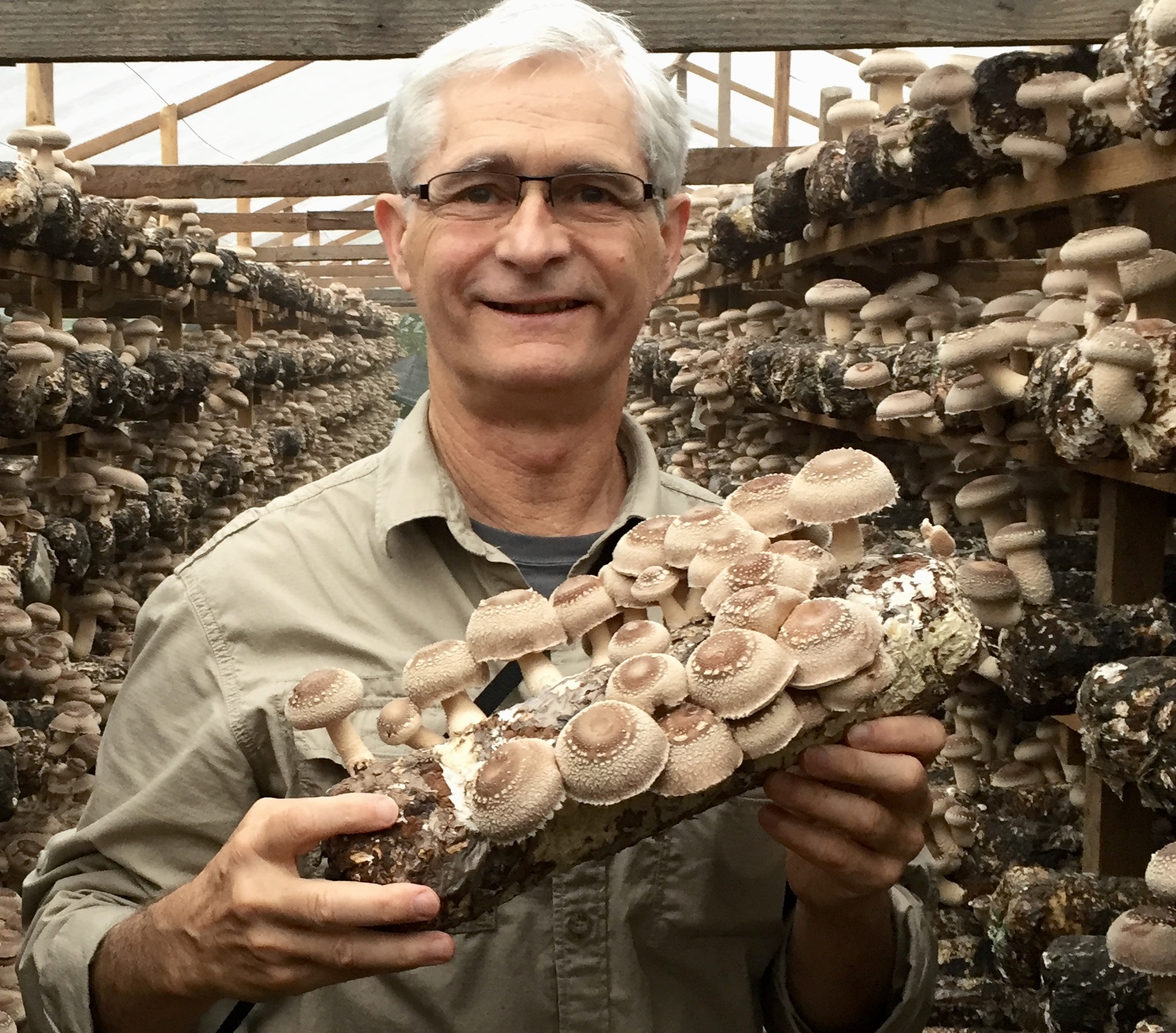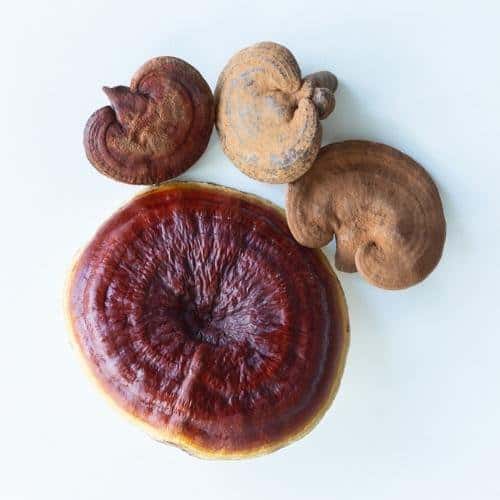Written by Real Mushrooms
What are the Benefits of Healthy Mushrooms?
Mushrooms are primarily immunomodulators. They have compounds in them that help modulate our immune system to keep it functioning optimally. Healthy mushrooms work to keep the systems in our body resilient to stressors. They help our body remain in a steady, balanced state called homeostasis.
One of the greatest benefits of healthy mushrooms like reishi, lion’s mane, turkey tail, chaga, and cordyceps revolves around our immune system regulation. Certainly there are good minerals and vitamins in whole mushrooms when you are eating them as food. As well, they’re a very good source of dietary fibre. Furthermore, they can act as a healthy prebiotic for our gut. But for the most part, the advantages of healthy mushrooms are their capacity to promote immune system regulation.
To learn more about how mushrooms help to support and regulate the immune system, read our article How Do Mushrooms Support the Immune System?
For an overview of the health benefits of each of the most common mushrooms, read our article 7 Medicinal Mushrooms and Their Health Benefits.
Reishi mushrooms are considered to be the “King” of healthy mushrooms.
What do Consumers Need to Know Before Buying Healthy Mushroom Supplements?
When we’re talking about healthy mushrooms, we need to remember that there’s different plant parts of these fungi. So we have the mushroom, we have the spore, and we have the mycelium.
Parts of a Mushroom:
- The spore is kind of like the seed. It’s out in the air all around us. There’s always spores around. It’s going to land somewhere and it’s going to germinate. Then that germination will start to form little fibers called hyphae, which then fuse into mycelium.
- The mycelium is like the root system of this fungal organism. When the environmental conditions are right, the mycelium produces the mushroom (a.k.a fruiting body).
- The mushroom is the “fruit” that the mycelium creates. It contains the most beneficial compounds for health. It also produces the spores to start the lifecycle over again.
Mushrooms are very high in beta-glucans and other compounds responsible for the health-promoting action of these fungi. Most mushroom supplements sold in North America are NOT using the mushroom (fruiting body). Many use the mushroom’s root system, mycelium, and grow this mycelium on a grain medium. This myceliated grain is often sold as a mushroom product when it contains no mushrooms. When selecting products, it is very important to distinguish between mushroom or mycelium.
Producers of mycelium-based supplements claim that the mycelium will consume the majority of this grain substrate. However, in our lab tests, we found that there are very low levels of beta glucan, and very high levels of alpha-glucan in these products (alpha glucans are things like starches and glycogen cellulose). These lab test results show us that the grain substrate the mycelium grows on is really not fully consumed at all.
Ultimately, this means that most of the mushroom supplement products on the market contain large amounts of starch and much lower amounts of beneficial fungal compounds.
That’s why Real Mushrooms tries to educate the consumer as much as possible about what they are getting when they buy our products. When people rely on our products for their wellbeing, it really matters that we are transparent about the quality and potency.
Mushroom Supplement BUYING GUIDE:
- Read the product’s Supplement Facts panel and attempt to distinguish the true contents of the product.
- Select products that primarily contain the mushroom (fruiting body), not just mycelium, myceliated grain, or myceliated biomass.
- Avoid buying products that lack specific information about the plant part of the fungi (whether mushroom or mycelium).
- Look for indication of an extract. Extraction breaks down the fungal cell wall and improves bioavailability.
- Look for brands that list the beta-glucans content in their Supplement Facts panel. It’s important for it to be in the Supplement Facts panel and not just in any marketing materials.
- Make sure the ingredients are grown organically.
- Always choose to buy from a trusted source.
Which is Best: Single-Ingredient Mushroom Supplements or a Mushroom Complex?
That’s a tricky one. One of our best selling products is mushroom complex called 5 Defenders which combines reishi, shiitake, maitake, turkey tail, & chaga, which are considered the main immune system boosters.
When you get into marketing we see a lot of 10-mushroom and 15-mushroom products promoting a “more is better” philosophy. However, your dosage then goes down on each individual mushroom in the product. Also, there may be certain mushrooms that you don’t really need.
The thing with healthy mushrooms is, they’re not necessarily something that you’re going to feel right off the bat. They’re not caffeine, they’re not aspirin. It is a product that builds the resilience of your body over time.
So, some people wonder, “what exactly are they doing?” If you’re taking mushroom supplements every day for a year and you don’t get sick during that time, is it the mushrooms? Or, is it exercise? Is it good sleep? Maybe it is all of the above. It can be really hard to pinpoint.
However, the growing body of scientific research is able to tell us what’s going on in the body when we introduce healthy mushrooms. The turkey tail mushroom is the subject of the most research compared to other mushrooms. Luckily, the Western medical world is becoming increasingly interested in the action of healthy mushrooms on wellbeing and longevity. More and more medical researchers are undertaking to validate what ancient wisdom and traditional medicinal practitioners have known about mushrooms for centuries.

Learn more at Realmushrooms.com
Use the code Forever to save 25% OFF
Disclaimer: The information or products mentioned in this article are provided as information resources only, and are not to be used or relied on to diagnose, treat, cure, or prevent any disease. This information does not create any patient-doctor relationship, and should not be used as a substitute for professional diagnosis and treatment. The information is intended for health care professionals only. The statements made in this article have not been evaluated by the Food and Drug Administration. Any products mentioned are not intended to diagnose, treat, cure, or prevent any disease. The information in this article is intended for educational purposes. The information is not intended to replace medical advice offered by licensed medical physicians. Please consult your doctor or health practitioner for any medical advice.


